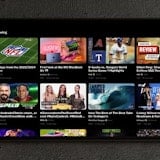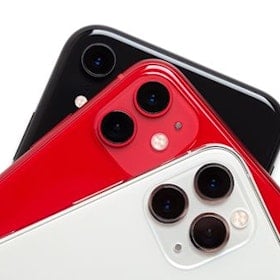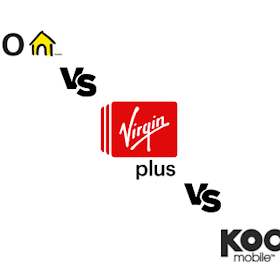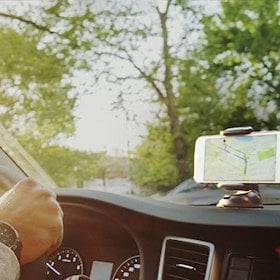 The Samsung Galaxy S3 (aka S III) should need no introduction. It’s the latest record-breaking Android flagship device from the world’s #2 smartphone manufacturer. Bringing more than just upgraded specs to the table, the Galaxy S3 is the fastest-selling Android smartphone to date with an estimated 19 million units to have shipped by the end of Q3 of 2012.
The Samsung Galaxy S3 (aka S III) should need no introduction. It’s the latest record-breaking Android flagship device from the world’s #2 smartphone manufacturer. Bringing more than just upgraded specs to the table, the Galaxy S3 is the fastest-selling Android smartphone to date with an estimated 19 million units to have shipped by the end of Q3 of 2012.
We figured that the best way to test wade through all the hype was to do our very own Samsung Galaxy S3 review and, ultimately, we really liked the overall experience. If you’d like a little more info than that then read on as we go in to more depth about the pros and cons of Samung’s new GS3.
Physical Design of the Samsung Galaxy S3
When left to its own designs, Samsung has never really displayed any overt creativity or a uniquely stylish approach to smartphone design. The best-looking Samsung devices that we can think of are the Nexus S and Galaxy Nexus, both of which were developed in conjunction with Google and, as such, were subject to creative input from both companies. Just about every other flagship device in Samsung’s recent history has been rather plain and straight-forward. That’s not entirely a bad thing, as it lets the quality of these devices speak for themselves, but there really is no harm in throwing a little class in the mix.
Finally with the Galaxy S3 Samsung has taken a look at its approach to aesthetics and done a 180 degree turn. The GS3 is sleek, stylish and just unique enough to be instantly recognisable from a distance, rather than appearing as ‘just another smartphone’ to any but the keen and educated of eye.
While made of fancy plastic, the body sports a convincing aesthetic approximation of brushed steel. The industry-standard black design absent, the two available colors, White and Pebble Blue, help the S3 to catch the eye, relying on both the brush steel look and beautiful screen to hold your attention once it has been won.
The 4.8 inch display sports minimal bezels around its edges, adding to the overall impression of quality. The smaller bezels also mean that, while sporting a large screen, the GS3 isn’t actually noticeably cumbersome when held in the hand or kept in the pocket. It’s also surprisingly light, once again detracting from its presence when stored out of site.
The curved back and lightweight design come in to play again when held in the hand or pressed against the ear. In fact, the GS3 is probably one of the more comfortable phones we’ve reviewed when it comes to calling.
There is a down-side to the design; the GS3 is actually quite smooth, meaning that grip can be a problem. If put on a car seat the handset is sure to slide straight off at the first turn. Another problem stemming from this that we discovered was its tendency to slide in to a landscape position in our pocket, radically decreasing comfort levels. It also meant that we never felt truly secure when pulling it from our pockets or just holding it in our hand. While comfortable, there was always a niggling reminder that this was a device that might be easily dropped if our attention were allowed to wander.
Overall we still loved the design though, but we would have appreciated a somewhat more grippy approach. Still, it’s a fantastic step in the right direction for Samsung.
 Display and UI
Display and UI
One thing Samsung does have a good reputation for is quality displays and the GS3 is a perfect example of this. The 4.8 inch HD display is stunning. The impressive resolution of 720x1280 provides a level of clarity not seen on most devices with a screen this large. On top of that the Super AMOLED display provides vibrant colors, stark blacks and relatively clear whites. We’d still put the whites of high-end HTC displays (such as on the One X and One S) above the GS3, but the GS3 provides colors with just that little bit more pop.
The TouchWiz UI on ICS works so incredibly smoothly backed up by the quad-core 1.4GHz processor. Of all the Android devices we’ve reviewed, we would say that the GS3 offers the smoothest and fastest experience for launching apps and navigating menus.
The Lock screen is almost more a work of art than a safety measure. After Samsung was successfully sued out of “slide to unlock” we were initially worried, as the measures it employed on the ICS update for the GS2 were shoddy at best. However, the Korean manufacturer has made the best of a bad situation and gone with a graphic approach that mirrors rippling water wherever the finger lands. This allows the user to effectively “swipe” to unlock in any direction that they please, while offering an aesthetically pleasing response.
We’re also fans of the new Lock screen functionality that Samsung, admittedly, seems to have ‘borrowed’ from HTC. Phone, Messages, Browser and Camera can all be jumped straight in to from the Lock screen. All the user has to do is place their finger on one of the icons at the bottom of the display and swipe upwards. The now-standard ICS addition of pull-down notification tray access has also been added to the lock screen, so long as the user has not implemented any security measures between the Lock and Home screens such as a password.
Our absolutely favorite thing about the GS3’s UI is Smart Stay. Smart Stay is a new innovation by Samsung that tracks your eye movements and will not switch your screen off while you’re looking at it. Seriously. It’s one of the best additions to any UI that we’ve ever seen and, surprisingly, it isn’t a huge drain on battery power. It is a little creepy, we have to admit, that your phone is always watching you. But at the end of the day it leads to a lot less frustration on behalf of the user.
 Camera and Battery Life on the GS3
Camera and Battery Life on the GS3
The 8MP camera of the Galaxy S3 was intermittently fantastic. That is to say, sometimes photos came out with extreme clarity and other times they were merely passable. We must still complement Samsung on this one, as we found the GS3’s shooter to be the best Android camera that we’ve ever used. Shots during the day generally came out quite clearly and with good color, while shots in dimly-lit areas, while still not great, saw a vast improvement over those offered by the GS2.
Perhaps what we liked most about the GS3’s camera was its flat-out and undeniable speed. Pictures took incredibly quickly with minimal time required for auto-zoom. It’s also very easy to switch modes between single shot, burst shot and a variety of other shooting modes. The menu buttons around the edges of the camera were also movable, much like app icons on the home screens. Not only that, but there are a variety of other shortcut icons to choose from, such as white balance and effects, if you feel that you would use those more often.
On top of all of this are the various social and sharing options that Samsung has integrated with the GS3. Social Tag is an automatic service that tags and recognizes friends from your contact list. Or, if it fails to, you can tag them yourself and it will take the name and suggest people from your contacts, after which it will learn their face and retroactively tag them in previous photos. The tags are all just suggestions, so it won’t permanently add anyone’s name without checking first. What’s even better is that by tapping on a tagged contact’s face you can send them the photo via MMS.
There’s also the option to immediately share all photos and videos taken with friends in the area who also have Galaxy S3 handsets. This would theoretically be super handy at concerts, sporting matches or just on a day out as everyone would get every photo taken and you wouldn’t each have to grab your own snapshot of that one street performer or that awesome shot of your favorite musician on stage. However, as it only currently works between GS3 devices it’s a pretty limited piece of functionality at present.
Video capture was also a marked improvement over most of the Android competition, but will still rather undeserving of the connotations carried by that “1080p” tagline. Video was certainly not terrible for a premium-range device, but we still weren’t overly impressed. It wasn’t that there were any particular glaring faults, merely that the overall experience was just a bit fuzzy. On the flip side sound-capture was fantastic, but one would hope that a device designed to function primarily as a phone would have a halfway-decent mic on board.
Battery life was good, we regularly got a whole day out of the GS3 with medium-to-heavy use. We have to admit that we were a little surprised, considering the hardware that this device comes packing. A quad-core processor and 720p 4.8 inch display would be enough to drain a lesser handset by lunchtime, but the GS3 just kept coming back for more all the way up until we put in on to charge at bed time.
 Browsing and Keyboard
Browsing and Keyboard
The keyboard on the GS3 is fast and responsive. Messaging is a breeze thanks to the responsive keyboard and large display. Where once we went in to detail regarding keyboard quality, these days just about every cat on the block has a more than satisfactory offering and the GS3 was no different. We’ll just say that we had absolutely no qualms with the keypad on the GS3 and leave it at that.
Browsing was fast. It’s not the fastest experience that we’ve ever seen on a smartphone but it was definitely close. The great display meant that web pages came out clearly and with bright colours while offering crisp text rendering, even when fully zoomed in.
Pinch-to-zoom was responsive and caused little to no lag thanks to the powerful processor and, well, that’s it really. Browsing was great.
 Music and Media
Music and Media
Music is another of those areas in which smartphones used to sink or swim but has now been mastered by all. The GS3 provided clear sounds and quite passable base. Its music app was aesthetically pleasing, easy to navigate and accessible from the Lock screen and notifications tray. As always we absolutely love the ability to skip tracks forwards and backwards from the notification tray, rather than only having the options to pause, play and go to the music app itself. This is something that we’d like to see every smartphone manufacturer adopt.
Video playback as outstanding on the 4.8 inch Super AMOLED 720p display. The HD offerings were so clear that it often felt unreal to watch. Going back from the GS3 to a lesser display really is the kind of soul-breaking thing that makes phone reviewing that much less glamorous, because at the end of the day a phone like the GS3 is going to make whatever you own look third rate by comparison.
Colors were bright and realistic, shapes were well defined, blacks were stark (although not as dark as a Nokia ClearBlack display) and whites were clear. The larger screen also offered a much more immersive experience than a smaller screen every could, at least for us. If you’re a big video content watcher on your smartphone then the Galaxy S3 should be at the top of your comparison list for this reason alone.
 The WhistleOut Opinion
The WhistleOut Opinion
The Galaxy S3 is a fantastic device but is it the best Android on the market? We’re going to go ahead and say yes. The HTC One X would surely give it a run for its money, but we felt that the GS3 offered a more aesthetically pleasing experience overall and its camera functionality left the One X for dead.
Of course, the aesthetic styling is totally based on personal opinion so others may disagree and if you’re not a big camera using then it’s still worth checking both phones out when you compare. But for us we have to say that the GS3 is the best Android phone we’ve ever reviewed.
It’s fast, smooth and stylish. We’d prefer a little more grip on the casing and perhaps some clearer shots from the camera but no phone is perfect. Overall the GS3 gets a big tick of approval for us here. The Android OS isn’t for everyone but we’d still say that anyone looking for a premium smartphone should definitely give thought to grabbing a Samsung Galaxy S3.



Related Articles
Related Topics
Samsung Android Ice Cream Sandwich Review Samsung Galaxy S IIIPopular Topics
Android Apple iPhone Samsung Google iOS Cell phone plans Rogers Telus BellFind Better Phones and Plans
Hundreds of cell phone plans unpacked. All the facts. No surprises.






































